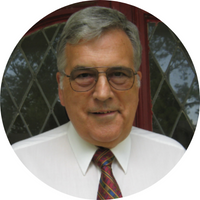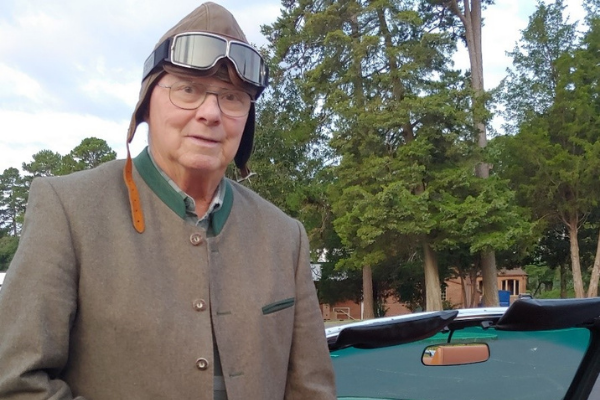
Did you choose retirement? Or was it chosen for you?
My retirement date was largely chosen for me. I would have lost my "Golden Handshake" had I turned it down. I would like to have had another year or two to see the commercialization of my project.
How was the transition from the working world to retirement?
The transition was not too bad. Many of my friends remained in the same area and we continued our weekly Friday lunches, until COVID-19.
Looking back, what do you wish you knew about retirement before you retired?
I had a pretty good idea as to what awaited me because of friends who had preceded me into retirement.
So far, what has surprised you most about retirement?
The rapidity with which it is passing!
What’s your best advice for someone in their 20s/30s?
I would advise preparing financially (and then some!) for retirement. Investigate what plans your employer has set up and position yourself to take advantage of them. Continually update yourself on your position, and consider adding independent plans if possible.
What do you enjoy most about being retired?
The ability to devote resources to my other interests, particularly history and archaeology, which, fortunately, my wife shares. We took several guided tours in Europe (e.g., Campania, Crete, and Sicily), and also visited relatives and friends in Britain.
What’s the biggest challenge you have confronted to this point in your retirement?
COVID-19. This disrupted the last year or so of my active involvement with ACS, and interfered with planned trips.
How do you stay connected to the chemistry enterprise as a retiree?
Besides my ACS activities, I served on the Board of my local section from 1978 to 2020 (as did my wife for part of this time). We still receive C&EN and, as an ACS Fellow, I receive electronic contents pages of all ACS journals, and the ability to download ones of interest.
What’s a travel destination you can’t wait to get back to?
Apart from visiting relatives in England, Scotland, Northern Ireland, and Northern France, I would like to return to Southern France to revisit Roman remains and wine country! It's great that one area combines two of my favorite interests! The scenery is also delightful (the Gorges du Verdon and du Tarn for example, as well as the Calanques). This is not to say that there aren't other places worth seeing again, e.g., Salzburg, Imst (Austria), Crete, and Sicily.
What do you like most about where you are living in retirement? What’s one thing you wish you could change about where you live?
Proximity to friends and immediate family. Exceptional facilities. I would love to have the ability to teleport! I am getting a bit ancient to travel long distances!
What guidance do you have for people who are getting ready to retire?
Prepare yourself intellectually. Study hard and equip yourself for the future.

I was born in rural Southwestern England, the eldest of three sons of a master carpenter, shortly after the onset of World War 2. It was mostly a peaceful area, though overflown by the German Luftwaffe en route to industrial cities in the north. My father was drafted in late 1943/early 1944, despite being 36 years old, working in a munitions factory, having two children, another expected, despite having a prosthetic femur!
I won an "Eleven Plus" scholarship to a Grammar School in 1951 and another to London University in 1957, obtaining a BSc in Chemistry in 1960. I then went to McMaster University in Hamilton, Ontario and obtained a PhD in physical organic chemistry in 1965. I did a post-doctoral fellowship (Jay. K. Kochi) at Case Institute of Technology, Cleveland OH. I then joined Shell Development Co, in 1967, initially in Emeryville CA, then Deer Park, TX in 1972, Amsterdam NL in 1975, and Houston, TX in 1976. I retired in 1999. I joined ACS in the mid-60's and was made an ACS Fellow in 2012. I am also a Fellow of the Royal Society of Chemistry (1985), and I am a member of the Archaeological Institute of America.
This article has been edited for length and clarity. The opinions expressed in this article are the author's own and do not necessarily reflect the view of their employer or the American Chemical Society.










